Blog
Understanding the Role of Dc Dc Converters in Modern Power Supply Solutions
In the rapidly evolving landscape of modern power supply solutions, DC-DC converters play a pivotal role in enhancing energy efficiency and enabling versatile applications across various industries. According to a recent market research report by Fortune Business Insights, the global DC-DC Converter market is projected to reach USD 13.8 billion by 2028, growing at a CAGR of 5.1% from 2021 to 2028. This growth is driven by the increasing demand for renewable energy systems, electric vehicles, and advanced consumer electronics, all of which rely heavily on efficient power conversion to optimize performance. Moreover, the integration of advanced technologies such as digital controllers and wide bandgap semiconductors in DC-DC converters is further enhancing their efficiency and reliability. As industries seek to minimize energy losses and maximize operational effectiveness, understanding the critical role of DC-DC converters becomes essential for engineers and designers alike.

The Evolution of DC-DC Converters in Energy-Efficient Solutions
The evolution of DC-DC converters has been integral to the development of energy-efficient solutions in modern power supply systems. Initially, these converters were primarily used in applications that required voltage regulation for discrete components, but their role has expanded significantly with the growing demand for efficiency in electronic devices. As technology progressed, converters became increasingly sophisticated, enabling the miniaturization of devices while improving performance. The introduction of switch-mode technology, for instance, allowed for higher efficiency levels and reduced heat generation, making them essential in portable and battery-operated devices.
In recent years, the push for sustainability has further propelled the advancement of DC-DC converters. Manufacturers are now focusing on developing converters that not only maximize energy efficiency but also minimize environmental impact. The integration of smart technology and advanced control algorithms has enabled real-time monitoring and optimization of power usage, leading to significant improvements in energy conservation across various sectors. With the rise of renewable energy systems and electric vehicles, DC-DC converters play a pivotal role in managing energy flow and enhancing overall system efficiency, thus shaping the future of power supply solutions.
Key Specifications to Look for When Choosing DC-DC Converters in Power Supply Design
 When choosing DC-DC converters for modern power supply designs, several key specifications should be prioritized to ensure optimal performance and compatibility. First and foremost, efficiency is critical; a higher efficiency rating indicates less energy wasted as heat, which is particularly important in applications where power output is paramount. Furthermore, power rating is another crucial aspect; it defines the load that the converter can handle, with options typically ranging from low wattage for minor electronics to high wattage for more demanding systems.
When choosing DC-DC converters for modern power supply designs, several key specifications should be prioritized to ensure optimal performance and compatibility. First and foremost, efficiency is critical; a higher efficiency rating indicates less energy wasted as heat, which is particularly important in applications where power output is paramount. Furthermore, power rating is another crucial aspect; it defines the load that the converter can handle, with options typically ranging from low wattage for minor electronics to high wattage for more demanding systems.
Another important specification is the input and output voltage range, as it determines the flexibility of the converter in different applications. A wide input range allows for diverse power sources, while a stable output voltage is essential for the reliability of the connected components. Additional features such as thermal performance, transient response, and noise levels can also significantly impact overall performance, particularly in high-demand scenarios like those emerging in AI and electric vehicle sectors. Thus, a detailed review of these specifications is vital for engineers seeking to optimize their power supply designs effectively.
Emerging Trends: Miniaturization and Integration of DC-DC Converters in Modern Electronics
In recent years, the miniaturization and integration of DC-DC converters have become pivotal trends in modern electronics. As devices become smaller and more powerful, the demand for compact power solutions has surged. Manufacturers are now focusing on integrating DC-DC converters directly into circuit boards, allowing for reduced space requirements and enhanced performance. This integration not only streamlines design processes but also improves efficiency by minimizing the length and complexity of the power distribution path.
Furthermore, advancements in technology have fueled the development of highly efficient, low-profile DC-DC converters. These converters are designed to operate effectively at higher frequencies, enabling the use of smaller inductors and capacitors. Consequently, the overall footprint of power supply solutions is diminished, making them ideal for applications in mobile devices, wearables, and IoT products. As the electronics industry continues to innovate, the role of miniaturized and integrated DC-DC converters will be critical in meeting the increasing demands for high-density power management solutions.
Trends in DC-DC Converter Efficiency and Size Over Recent Years
Performance Metrics: Efficiency and Thermal Management in DC-DC Converter Applications
DC-DC converters play a crucial role in modern power supply solutions by enabling efficient energy management across various applications. Performance metrics such as efficiency and thermal management are essential factors that influence the effectiveness and reliability of these converters. Efficiency is a measure of how well a converter transforms input power into output power without unnecessary losses. Higher efficiency indicates a more effective converter, leading to reduced energy consumption and longer battery life in portable devices. Designers often aim for efficiencies exceeding 90% to meet the demands of energy-sensitive applications.
Thermal management is equally important, as efficient operation generates heat, which can adversely affect converter performance and longevity. Effective thermal management strategies, such as the use of heat sinks, fans, or thermal interface materials, can dissipate excess heat and maintain optimal operating temperatures. This is particularly relevant in applications where space is limited, and excessive heat could lead to component failure. Thus, balancing efficiency and thermal management is vital for ensuring the reliability and longevity of DC-DC converters in various modern power supply applications.
Understanding the Role of DC-DC Converters in Modern Power Supply Solutions
| Converter Type | Efficiency (%) | Input Voltage Range (V) | Output Voltage (V) | Output Current (A) | Thermal Management Technique |
|---|---|---|---|---|---|
| Buck Converter | 90 | 4.5 - 14 | 3.3 | 5 | Heatsink |
| Boost Converter | 92 | 2.5 - 12 | 5 | 3 | Active Cooling |
| Buck-Boost Converter | 89 | 3 - 15 | 12 | 2 | Thermal Pads |
| Isolated Converter | 95 | 10 - 30 | 15 | 1.5 | Fan Cooling |
Industry Insights: Market Growth Projections for DC-DC Converters by 2025 and Beyond
The market for DC-DC converters is poised for significant growth in the coming years, driven by the increasing demand for efficient power supply solutions across various industries. By 2025 and beyond, the expansion of electric vehicles, renewable energy systems, and telecommunications infrastructure is expected to bolster the adoption of DC-DC converters. These devices play a crucial role in converting voltage levels, thereby enhancing the performance and reliability of electrical systems. As the global focus shifts towards sustainability and energy efficiency, the need for advanced DC-DC conversion technologies is becoming more pronounced.

Moreover, the U.S. uninterruptible power supply (UPS) market reflects a similar trend, with a growing emphasis on both AC and DC UPS systems. This includes specialized configurations for IT and non-IT applications across various sectors. The rise of modular UPS systems is particularly noteworthy, as they offer scalable solutions that can adapt to the changing power demands of modern infrastructures. Industry projections indicate that as businesses increasingly invest in robust power management systems, both DC-DC converters and UPS technologies will be integral to ensuring operational continuity and energy efficiency in a dynamic market landscape.
Related Posts
-
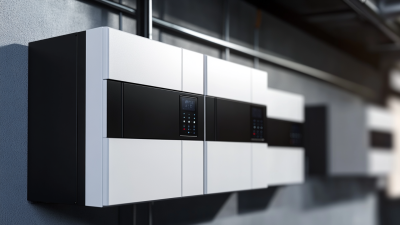
Unlocking Quality: Strategies to Source Premium Pure Sine Wave Inverter Suppliers
-

Understanding the Technical Specifications of Best Ups Power for Optimal Performance
-
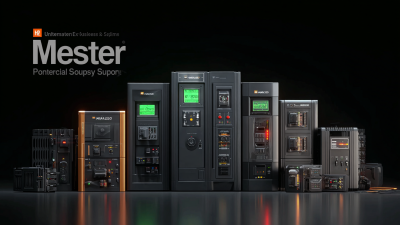
Mastering the Essentials of Best Uninterruptible Power Supply for Global Buyers
-
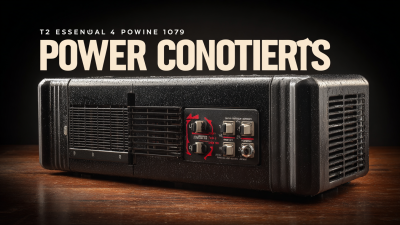
12 Essential Tips for Choosing the Best Power Conditioner for Your Needs
-
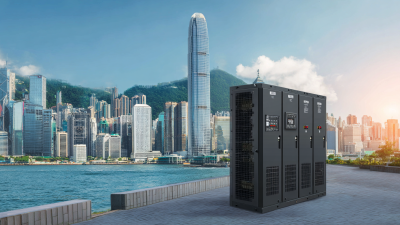
Elevating Global Standards: The Rise of China's Best AC Power Supply in International Markets
-
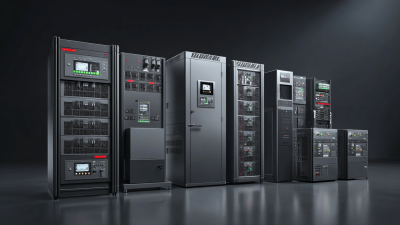
Unlocking the Advantages of the Best Backup Power Supply for Your Business Efficiency
